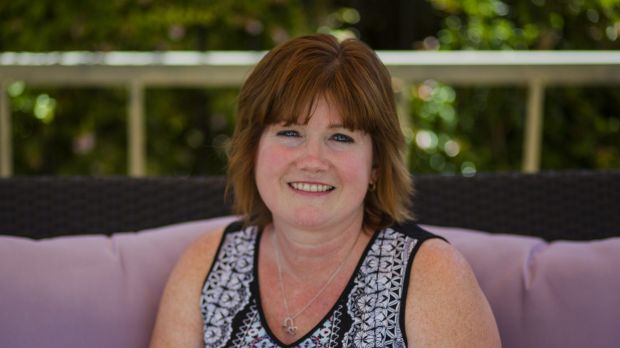
Sharon Dei Rocini has metastatic melanoma and wants to spread the message about sun safety. Photo: Jamila Toderas
More than one in 10 Canberrans were sunburnt on summer weekends, according to new research from the Cancer Council.
The organisation has released the research to coincide with World Cancer Day on Wednesday and called for renewed investment in skin cancer campaigns to once again raise awareness of the dangers of spending a weekend under the sun.
The research revealed 13 per cent of adults in the ACT were affected by weekend sunburn in 2013-14, slightly lower than the national average.
Findings from the Cancer Council’s national sun survey revealed adults were becoming less concerned about the risk of sun exposure leading to skin cancer.
Nationally, the number of adults who were sunburnt on the weekend climbed by nearly half a million over the past two years, with figures reaching 2.4 million last financial year.
In wake of the research, Cancer Council national skin cancer committee chairwoman Vanessa Rock said adults were spending more time outdoors in peak UV times than four years ago, increasing their chances of getting sunburnt.
Sharon Dei Rocini still remembers the days she would spend in the sun unaware of the damage she was exposing her body to.
The 45-year-old from Chisholm was diagnosed with stage one melanoma in 2007, but six years later discovered the cancer had spread throughout her brain and lungs.
“I don’t think people understand that melanoma is skin cancer but it can also spread throughout your body. There needs to be more awareness and campaigns showing this,” she said.
Cancer Council public health committee chair Craig Sinclair said Canberrans could receive the first sign of sunburn in just 12 minutes, highlighting the intensity of the UV rays in Australia.
With the absence of a national skin cancer campaign in more than five years, Mr Sinclair believed the new statistics showed Australians were not completely aware of the dangers and pointed to the need for awareness campaigns.
